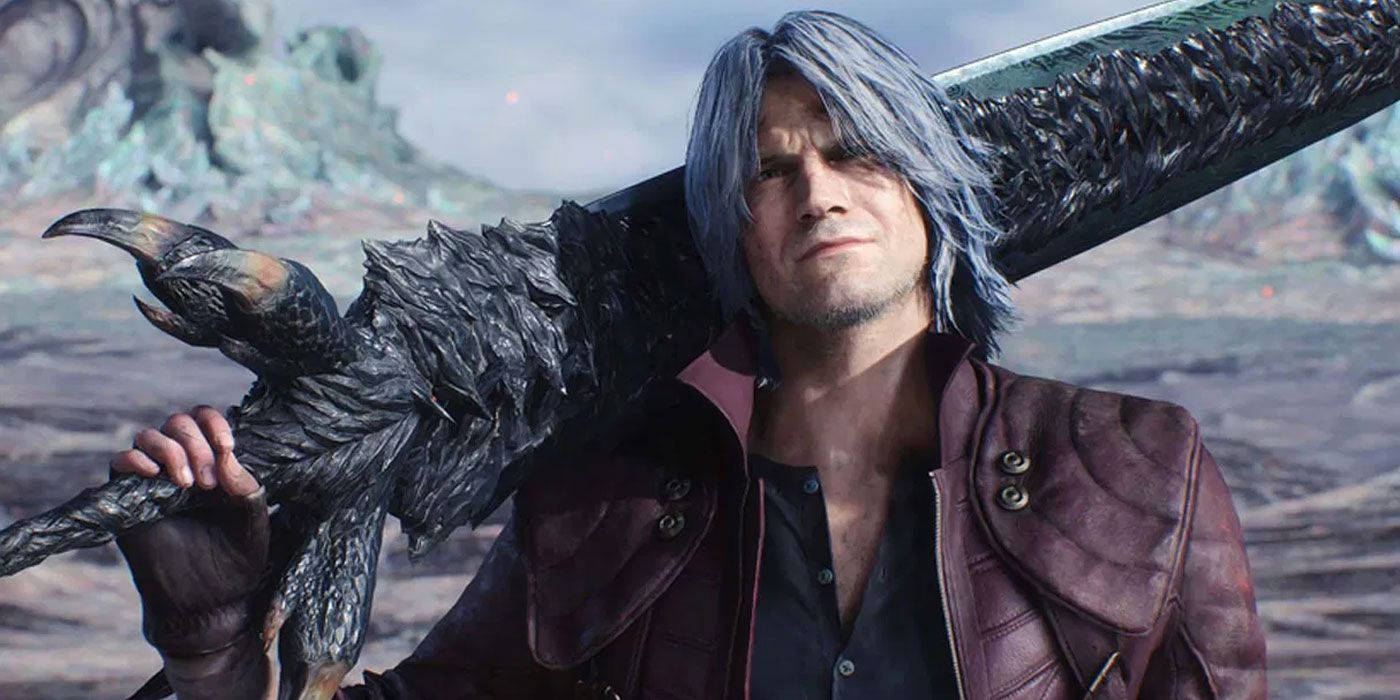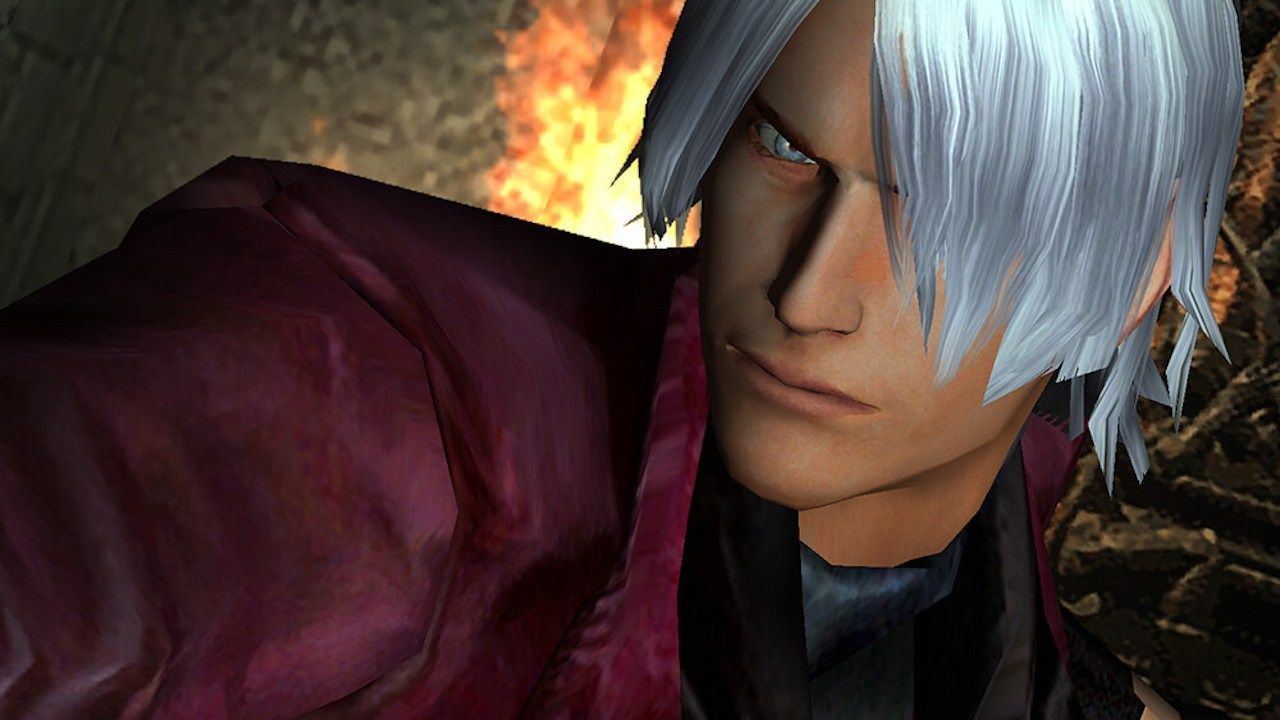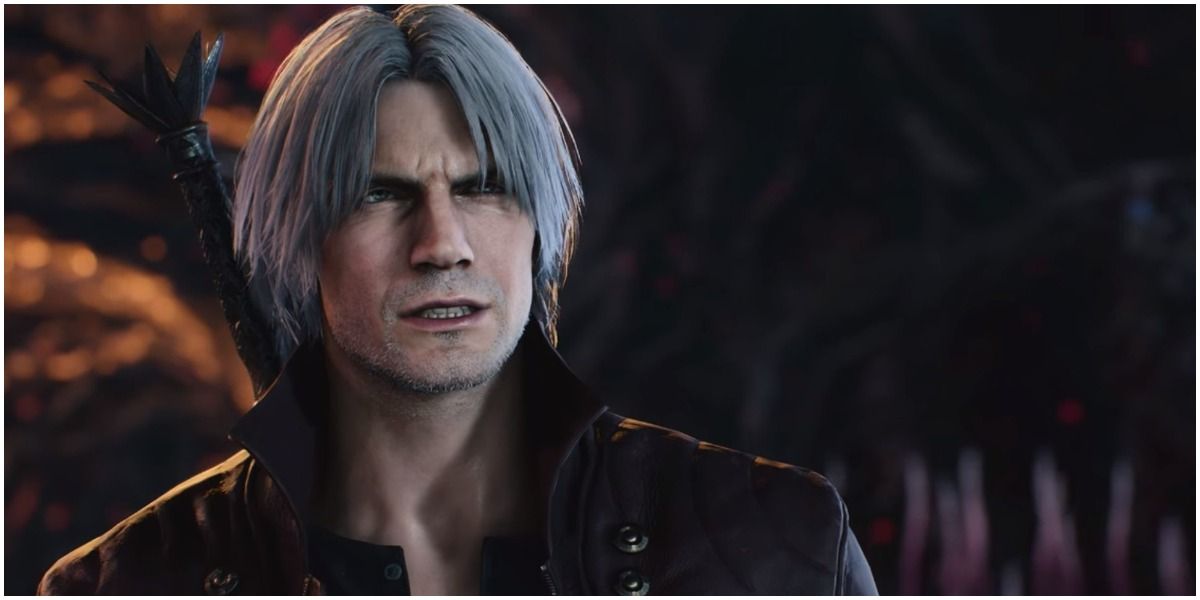
This year marks the 20th anniversary of Devil May Cry, the hack-and-slash video game franchise that introduced the cocky monster hunter Dante and his friends to the world. Slick, fast-paced and with enough self-confident swagger to redefine the genre, Devil May Cry has quickly become one of Capcom's most popular franchises. And while Dante won't be making an appearance in Super Smash Bros. anytime soon, Devil May Cry remains just as prominent as ever, with an acclaimed remaster of Devil May Cry 5 recently released for PlayStation 5. Here is a look back on the franchise's origins and how it has changed over the years.
When development began on Devil May Cry in 1999, it was originally intended as Capcom's initial plans for Resident Evil 4, with developers taking a research trip to Spain to survey medieval architecture. As the planned game began to veer more into stylized action-packed gameplay, producer and Resident Evil co-creator Shinji Mikami felt this would stray too far from Resident Evil's survival horror roots and decided to make the planned game a separate standalone title instead.

The project's director and co-writer Hideki Kamiya rewrote the entire concept to be about a man hunting demons, naming the protagonist Dante after The Divine Comedy author Dante Alighieri and drawing inspiration from Buichi Terasawa's manga series Cobra to inform Dante's cocksure, fun-loving personality. To underscore how stylish and cool Dante was, the designers gave him a long, red trench coat, with the color red often symbolizing heroism in Japan. After noticing a bug in Onimusha: Warlords that let players juggle enemies in the air with attacks, the developers decided to create a combat system that rewarded players achieving multi-hit and varied combos.
With its Gothic-inspired visuals, fast-paced combat gameplay and intuitive control scheme, Devil May Cry was widely praised upon its release for the PlayStation 2 in 2001 and went on to sell over two million copies worldwide within its initial release window. Capcom followed up Devil May Cry's success with two sequels for the PS2, released in 2003 and 2005, that deepened the combo-driven gameplay and technical presentation of the respective titles. However, while 2008's Devil May Cry 4 was commercially and critically successful upon its launch for the PlayStation 3 and Xbox 360, Capcom decided to take the franchise in a different direction.
Devil May Cry 4's follow-up DmC: Devil May Cry was given to Ninja Theory, with Capcom actively working with the developers a full reboot of the franchise that could compete with Kamiya's new hack-and-slash franchise Bayonetta. The rebooted story and radical redesign of Dante was made to appeal younger audiences unfamiliar with the franchise while the combat was streamlined. Though DmC was commercially and critically successful, fans remained divided, and the game sold a fraction of Devil May Cry 4's totals when it was released in 2013 for the PS3 and 360.

Following the mixed response to DmC, Capcom revisited the original series' story and characters, with 2019's Devil May Cry 5 serving as a direct sequel to Devil May Cry 4. More than just a return to form, the developers actively sought to push the hardware capabilities of the PlayStation 4 and Xbox One as far as they could go with the title. It added a greater variety in gameplay by further differentiating Dante, Vergil and Nero while introducing a new character, V. Including its enhanced remaster for the PS5, Devil May Cry 5 was a tremendous critical and commercial success as one of the strongest in franchise history.
Twenty years later, the future still looks bright for the Devil May Cry franchise, with the series still topping sales charts and earning critical acclaim as it leans back into its history while expanding and refining the gameplay. From what was originally intended as a radically different direction for the Resident Evil franchise, Devil May Cry has gone on to become a success in its own right and another enduring franchise for Capcom that remains as vibrant as ever.
0 Comments